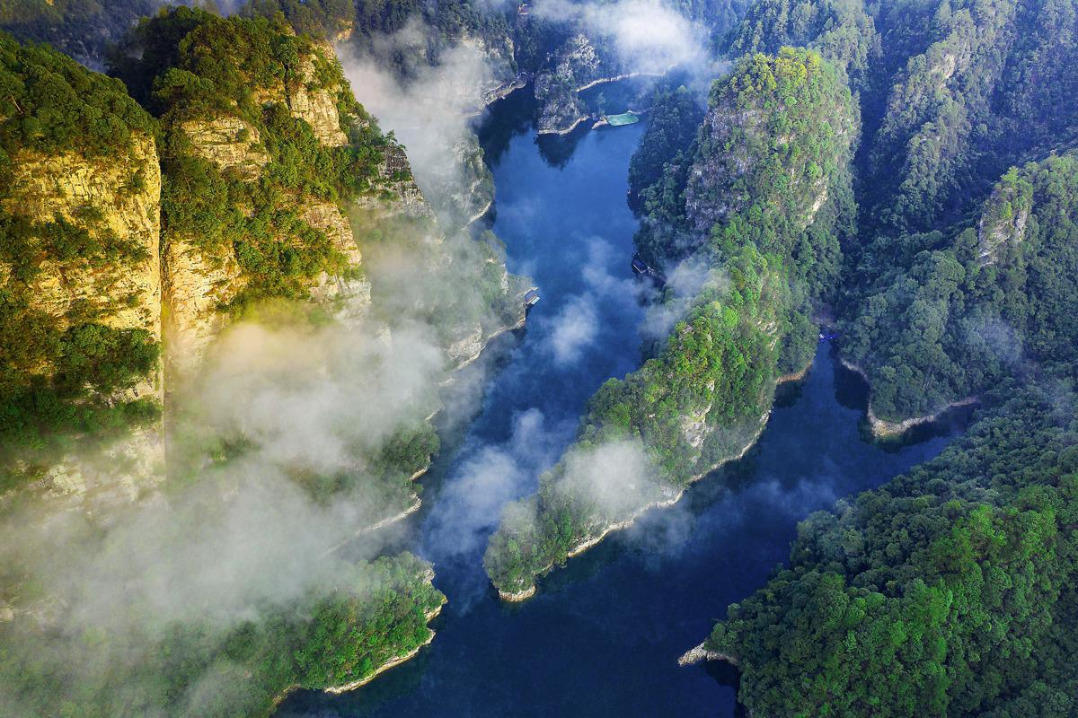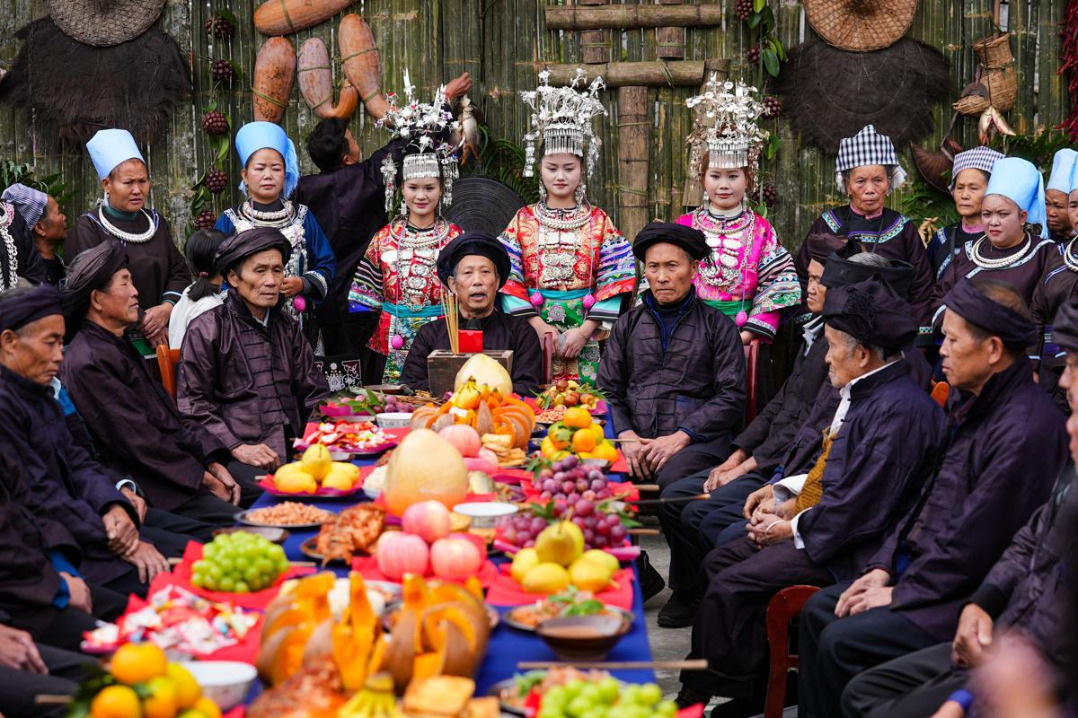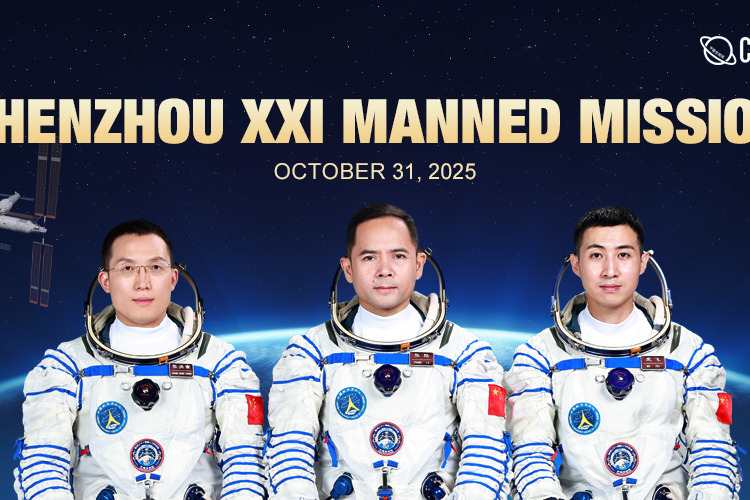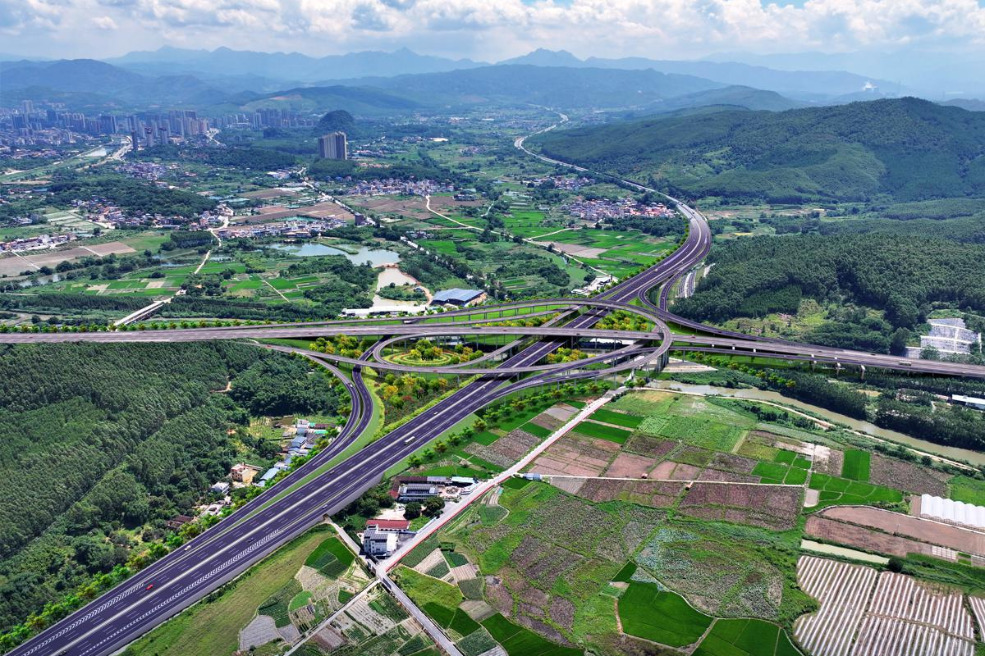River forum exhibits ecological cooperation

At the Yangtze-Mississippi Regional Dialogue, which kicked off Wednesday in Wuhan, Hubei province, representatives from China and the United States demonstrated a strong shared commitment to ecological security and sustainable development.
More than 100 representatives from the Chinese and US governments, institutions, enterprises and universities gathered in the city for in-depth discussions on topics such as shipping and logistics, cultural tourism, sister-city exchanges, education and youth development.
The event introduced two plans: the "Wuhan Initiative on Yangtze-Mississippi River Basin Cooperation and Development", along with "Caring for Nature, Working Together — A Shared Vision for Chinese and American Youth Protecting the Great Rivers". The initiatives aim to further develop city partnerships, deepen cultural and people-to-people exchanges, address common challenges such as climate change, enhance shipping and logistics connectivity, and jointly create new opportunities to facilitate win-win cooperation.
The Yangtze River — known as China's "mother river" — has nurtured the Chinese civilization, while the Mississippi River — regarded as the "father of waters" in the US — has fostered a distinctive pioneering spirit.
Despite the vast distance between them, the people living along the two great rivers are linked by a shared mission of development and a vision of mutually beneficial cooperation.
At the dialogue, stories of the Yangtze River offered participants an opportunity to "listen to the East" and better understand China's environmental ethos.
Xu Zhaoming, chief planner of the Changjiang Water Resources Commission of the Ministry of Water Resources, shared the philosophy, practices and achievements in protecting and managing the Yangtze River.
"China adheres to a water management approach that prioritizes water conservation, seeks spatial equilibrium, implements systematic governance and achieves government-market synergy, focusing on ecological priority and green development in protecting the Yangtze River," he said. "We have promoted the comprehensive implementation of a 10-year fishing ban across the river and maintained Class II water quality in the main stream for several years, achieving a steady recovery of aquatic biological resources."
The Yangtze River Protection Law, enacted in March 2021, provides a legal foundation for the river's protection and management.
"Our philosophy of water governance reflects China's experience in protecting and managing rivers and lakes and in exploring principles of governance that are not only tailored to China, but also applicable to international river and lake management," Xu said. "We are willing to share our experience."
Gao Baoyan, deputy secretary-general of the Wuhan Baiji Conservation Foundation, highlighted Hubei province's achievements in ecological protection along the Yangtze, citing the conservation of the Yangtze finless porpoise as an example.
In 2005, the world's first Yangtze finless porpoise naturally bred in an artificial environment was born in Wuhan.
"So far, the latest population of the Yangtze finless porpoise has increased to 1,249," said Gao, a former photojournalist who has documented efforts made to ensure the porpoise's survival. "The stories of harmonious coexistence between humans and nature also witness the cross-border dialogue of civilizations."
While visiting the Wuhan Cetacean Science Museum at the Institute of Hydrobiology, part of the Chinese Academy of Sciences, on Tuesday, representatives learned about the efforts being made to protect the Yangtze finless porpoise.
At the dialogue, Kimberly Norton, mayor of Rochester, Minnesota, shared her insights on achieving balanced development in her city.
"As we meet in Wuhan, we are inspired by Wuhan's dedication to innovation and resilience," Norton said. "Your experiences of recovering and rebuilding have shown the world the strength of the human spirit. From healthcare to technology to water management, our paths share many similarities. I hope we can explore opportunities for exchange, such as partnerships in water technology, sustainable urban design and environmental education."
Shaundel Washington-Spivey, mayor of La Crosse, Wisconsin, said: "Being here today alongside leaders from across the Yangtze region, I'm eager to learn from your experiences, especially in areas like conservation tourism, sustainable urban design and how dense cities balance growth with livability and environmental care. There is so much we can learn from China's rich experience managing the Yangtze River, and I look forward to exploring opportunities to exchange ideas and strengthen connections between our communities."
Contact the writers at zhouhuiying@chinadaily.com.cn




































